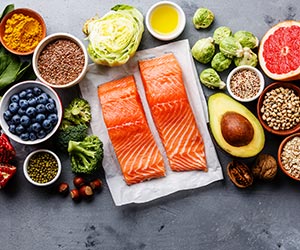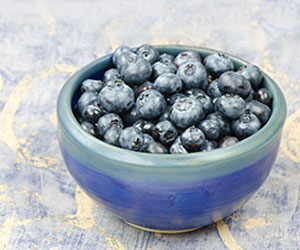NutritionTaking ownership of personalized diet plans can bring about a sense of empowerment. Support consultations and monitor endorse healthy eating habits prior, during and after cancer treatments.

INTRODUCTION
Good nutrition is the basis of cancer prevention, treatment, and recovery. Eating a variety of nutritious foods and well-balanced meals can help patients maintain a healthy body weight, improve strength, increase energy and lower the risk of adverse effects. At Esperance, we have registered health care providers to help patients make informed nutritional choices that are catered to their specific needs.
REDUCING CANCER RISK THROUGH NUTRITION
Aside from reducing the risk of developing cancer, a good nutrition plan helps reduce the likelihood of developing heart problems, obesity, diabetes, hypertension and other chronic diseases. As an overarching rule of thumb, a healthy diet is the way to go. Our diet philosophy emphasizes organic produce, carbohydrate control and healthy food preparation choices as a means to decrease cancer activity.
Phytochemicals
Found in plants, phytochemicals are chemicals, which protect plants against bacteria and viruses. In people they may act as antioxidants or nutrient protectors to prevent carcinogens (cancer causing agents) from forming or help to get rid of harmful carcinogenic substances. Phytochemicals can be found in brightly colored fruits and vegetables, whole-grain and cereals and beans.

Antioxidants
Antioxidants are substances that inhibit the oxidation process and act as protective agents. They protect the body from the damaging effects of free radicals, which attack biological structures such as our DNA. Antioxidants include vitamin C, beta-carotene and vitamin E. Vitamin C may protect us against cancer of the oral cavity, stomach and esophagus. Whereas, beta-carotene, or vitamin A, may help decrease the risk of developing cancer by enhancing immune system function. Lastly, vitamin E is especially protective of nervous tissue and blood cells.

Omega-3 fatty acids
Omega-3 fatty acids can exhibit strong anti-inflammatory effects, which help reduce the risk of cancer as well as numerous other chronic and degenerative conditions. As our bodies cannot produce omega-3 fatty acids internally, we must get them from food and supplements. Foods known for their Omega-3 properties include: seafood such as salmon, mackerel, sardines, halibut, and tuna. Alternatives include flax-seed oil, kidney beans and soybeans.
.jpg)
CLINICAL NUTRITION
Adopting a healthy diet before cancer treatments also helps increase energy levels and improve the sleeping patterns of patient’s. Some of the cancer treatments may cause weight loss and appetite changes so, patients can be expected to receive intensive dietary change recommendations from the initial consultation. To maintain the patient’s energy levels and good health during cancer therapy, our registered health care providers will help design meal plans that cater to the patient’s specific needs. The main goal is to improve the efficacy of the therapy, as well as maintaining a high quality of life for the patient.
Our registered dietitians will take the patient’s treatment methods, personalized medicine and personal dietary requirements into consideration. When patients are going through treatments such as cytotoxic and radiation therapy, they may be recommended to try interventional fasting, ketogenic diet and low-carb diet. On the other hand, comprehensive vegetarian and fiber-rich diets are also available for vegetarian patients.